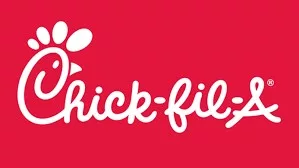Fans of quick service restaurants as well as those interested in business franchising reacted strongly last week when it was announced that Chick fil-A was coming to Benton Township. The much talked about chicken sandwich purveyors are planning to open a location on the old Steak & Shake site on Pipestone Road off Exit 29.
The fast-food folks are mostly thrilled, with a caveat. Many are skeptical whether Chick fil-A will be able to recruit an adequate restaurant staff in the local labor market, which has driven several small food and beverage operators to close since the end of the Covid pandemic.
Meanwhile, the franchise focused people, usually involved in business themselves in some manner, are curious who the Chick fil-A franchisee will be. Will they be local? Will the store be operated by a large, out of town franchise owner? MoodyOnTheMarket.com has not been able to answer all the questions, however we have learned some interesting background about how Chick fil-A franchises work, and how they are quite different from most national food brands.
You might be as surprised as we were to learn that a Chick fil-A franchise costs only $10,000. That’s a fraction of what other big national fast food brands charge for a franchise. And while a potential franchisee must pass stringent financial reviews and have a super-clean financial history, there is no requirement for hundreds of thousands of dollars in working capital or ‘start up money.’ Chick fil-A has virtually all those requirements covered at the corporate level. They are repaid through leases and monthly fees paid to Chick fil-A on an ongoing basis, apparently forever.
By contrast, a new McDonalds franchisee is expected to have at leasgt $500,000 in ‘liquid cash’ for operations and will likely invest nearly $2 Million in an initial restaurant location.
An astounding 40,000 people apply to be Chick fil-A franchise owners ever year… and less than one percent of them are approved. Chick fil-A is looking for a specific type of individual to operate its locations. That person is hard working, dedicated and shares in the conservative value system that Chick fil-A is deeply committed to. Applicants must show previous leadership experience, rather than any previous food management experience.
Above all, franchise applicants must be committed to ‘hands on management.’ They are expected to be in their restaurants for much of the time they are open and they must be able to work hand in hand with their employees. They must be able to DO the work, not just talk about it. In many ways, the Chick fil-A franchise owner serves as an “Operator” as much as an owner.
In fact, Chick fil-A corporate retains ownership of ALL real estate and equipment in ALL of its locations. They maintain, however, that the stores are ‘franchised’ because the ‘Operator’ is on-site, running the business and managing the staff every day.
Monthly, the operator pays rent and service fees for the location and the use of all the equipment and systems, in addition to 15% of gross sales ‘off the top.’ At year end, Chick fil-A is said to retain 50% of the bottom-line profit from each location. That’s after all the monthly rent and fees also have been paid to the national orgainization.
Franchise owners are not allowed to select the location of their store and cannot sell it if they retire or choose a different course for their lives. Most importantly, they cannot pass it on to the next generation of their family like many small businesses do. In that sense, some say that a franchisee is ‘buying a job’, rather than investing in a business. Chick fil-A franchisees, however, are known as an enthusiastic and committed group, who usually speak very positively about their experience
Historically, Chick fil-A is one of the most successful quick service restaurant chains ever! Only McDonald’s and Starbuck’s exceed Chick fil-A sales on a national scale.
According to 2023 estimates, the average free-standing Chick fil-A location generates gross sales of about $8.5 Million a year. A franchisee/operator could be expected to earn between $85,000 and $200,000 or more annually—pretty good for a restaurant manager, but not necessarily for the owner of an $8.5 Million dollar business.
It’s an unusual franchise and financial structure, but one that’s been highly successful for Chick fil-A since its beginning in Georgia in 1946. The brand was started by S. Truett Cathy and is still controlled by his descendants.
By Gayle Olson, MOTM Contributor






